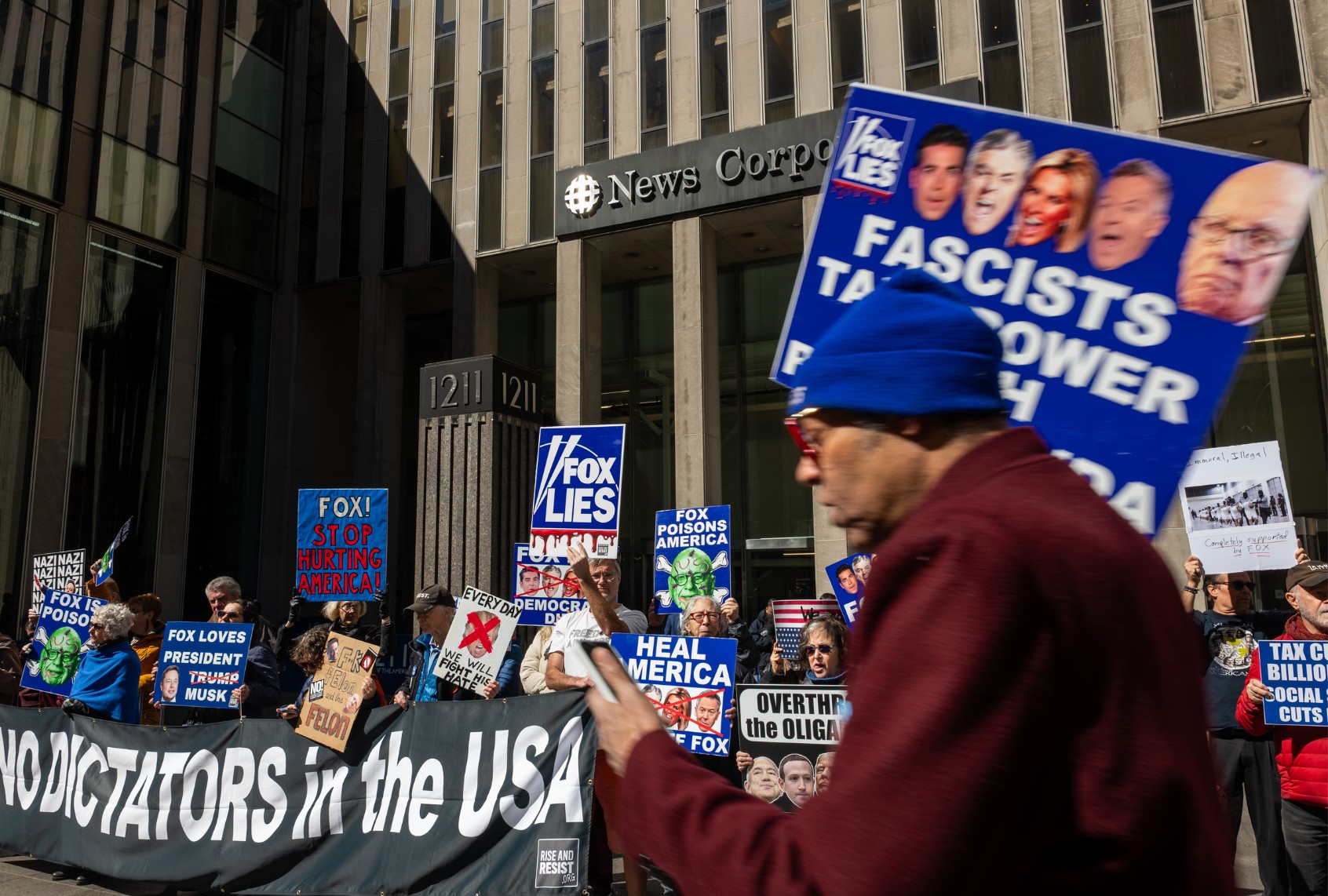Politics
Historian Tom Alter Fired Amid Controversial Claims on Free Speech

The recent termination of historian Tom Alter from Texas State University has sparked significant debate regarding free speech and academic freedom. Alter was dismissed on September 11, 2023, after claims surfaced that he had incited violence during a speech at a socialist conference. This incident has drawn attention to broader societal issues surrounding right-wing movements and the suppression of dissenting voices in academia.
Texas State University President Kelly Damphousse accused Alter of inciting violence, a charge that stems from a video shared by far-right influencer Karlyn Borysenko. The video, which circulated widely on social media, presented a misleading excerpt of Alter discussing anarchist thought related to protests at the Atlanta Public Safety Training Center, also known as “Cop City.” Borysenko’s clip omitted Alter’s critical perspective on certain activist methods, prompting his dismissal.
Borysenko has gained notoriety for her extreme views, even asserting that “Hitler went to heaven,” a claim made in an August 2024 post. She has a history of espousing revisionist narratives about World War II and the Holocaust, insisting that the public has been misled about these historical events. Her statements have raised serious concerns regarding the spread of disinformation, especially in light of her appearance on Fox News, where she portrayed herself as an investigative journalist revealing leftist agendas.
In her remarks, Borysenko has claimed that many who died in the Holocaust chose their fate to understand “the experience of ultimate oppression.” Such statements have been met with widespread condemnation and have fueled discussions about the increasingly visible role of individuals like Borysenko in right-wing movements.
Legal and Institutional Repercussions
Following his firing, Alter has filed a lawsuit against Texas State University, claiming that his termination was a violation of his First Amendment rights. His attorney, Amanda Reichek, stated that Alter was expressing his personal views and did not represent the university during his speech. According to Reichek, a self-identified fascist registered for the conference without the organizers’ knowledge and subsequently recorded Alter’s comments, violating the event’s policy against recording.
President Damphousse’s statement indicated a commitment to upholding the university’s values, asserting that “conduct that advocates for inciting violence is directly contrary to the values of Texas State University.” This incident reflects a larger trend within Texas’s educational institutions, where administrators are increasingly scrutinizing speech deemed offensive or politically charged.
The actions against Alter are not isolated. Earlier this month, another academic, Melissa McCoul from Texas A&M, was dismissed after a video surfaced showing her being confronted by a student about her statement regarding gender, which contradicted a directive from former President Donald Trump. These firings suggest a pattern of disciplinary measures against educators who express controversial opinions.
The Role of Online Activism
Borysenko has positioned herself as a key figure within right-wing circles, claiming to expose leftist ideologies by infiltrating meetings and sharing her findings on platforms like Substack. Her rhetoric includes dire warnings about the left’s intentions, asserting that their primary goal is the “violent overthrow of the federal government.” Such statements have raised alarms among scholars and activists who monitor right-wing extremism.
Liz Yates, an expert on political violence at the Western States Center, emphasized that individuals like Borysenko are increasingly influencing anti-democratic and bigoted networks. Yates noted that the content produced by these “streamers” is often misleading, promoting disinformation that can incite hostility against marginalized communities.
As the debate continues over the implications of Alter’s firing and the influence of figures like Borysenko, it remains clear that the intersection of free speech, academic integrity, and the rise of far-right ideologies poses pressing challenges in contemporary society. The outcomes of these situations could shape the future of academic discourse and the protections afforded to educators across the political spectrum.
-

 Lifestyle4 months ago
Lifestyle4 months agoLibraries Challenge Rising E-Book Costs Amid Growing Demand
-

 Sports3 months ago
Sports3 months agoTyreek Hill Responds to Tua Tagovailoa’s Comments on Team Dynamics
-

 Sports3 months ago
Sports3 months agoLiverpool Secures Agreement to Sign Young Striker Will Wright
-

 Lifestyle3 months ago
Lifestyle3 months agoSave Your Split Tomatoes: Expert Tips for Gardeners
-

 Lifestyle3 months ago
Lifestyle3 months agoPrincess Beatrice’s Daughter Athena Joins Siblings at London Parade
-

 World3 months ago
World3 months agoWinter Storms Lash New South Wales with Snow, Flood Risks
-

 Science4 months ago
Science4 months agoTrump Administration Moves to Repeal Key Climate Regulation
-

 Science3 months ago
Science3 months agoSan Francisco Hosts Unique Contest to Identify “Performative Males”
-

 Business4 months ago
Business4 months agoSoFi Technologies Shares Slip 2% Following Insider Stock Sale
-

 Science4 months ago
Science4 months agoNew Tool Reveals Link Between Horse Coat Condition and Parasites
-

 Sports4 months ago
Sports4 months agoElon Musk Sculpture Travels From Utah to Yosemite National Park
-

 Science4 months ago
Science4 months agoNew Study Confirms Humans Transported Stonehenge Bluestones









